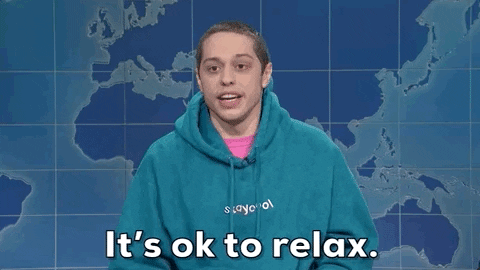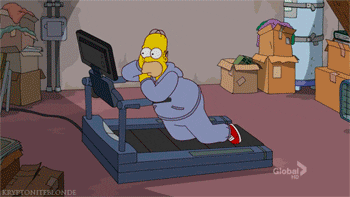productivity tips · Jun 2, 2021
Even Zoom CEO has Zoom Fatigue: How to Stop Being Burnout in the Remote Working Era

The conversation around Zoom’s CEO having Zoom fatigue (source) raises a few interesting points. Especially as now many businesses are able to return to pre-pandemic work conditions.
Some of the points this has raised are: remote worker fatigue, Zoom burnout, and how difficult it can be to compartmentalize home and work when the two are in the same physical space.
In theory, preventing burnout is easy—and we have ten tips to help you do just that. Of course, it does come down to your individual circumstances, budget, and work/life balance. But we believe these tips can be quite helpful to most people who work from home.
As to the first two points: remote worker fatigue and Zoom burnout — which encompasses burnouts associated with the constant go-go-go nature of remote work—there are ways to manage these as well. Though, it’s unlikely anyone’s going to have a magic cure-all to completely solve these problems.
10 tips to prevent burnout in the remote working era
Working remotely can take some getting used to. Where there was previously a boundary between work and home, now there is none. Where before meetings were punctuated by travel, now they are only punctuated by the few moments it takes to enter the next Zoom meeting or conference call.
Preventing burnout doesn’t involve anything too convoluted. It’s more a series of small things to do, and small habits to develop and cultivate, that will help you prevent burnout.
What follows are only 10 tips, there are many more, but we feel these are a good place to start.
Read more on top 5 business tactics to take into 2021.
1. Take a walk
Get up. Get out. Go for a walk. Don’t take your phone, or your smartwatch. An old-fashioned wristwatch will suffice.
The walk doesn’t have to be long, just a brief 10-15 walk will do wonders.
Going for a walk has shown to help alleviate stress, and help to reset your mind toward your motivation and goals.
These don’t have to be long-term goals or motivations, by the way. It can be as simple as recharging and ensuring your get all your work done so that when you clock off for the day, you don’t go back to work until tomorrow.
2. Make yourself a rewards system
This can be anything from, I can’t watch my favorite show, start cooking dinner, or do that thing you love, until you’ve completed x number of tasks.
It’s a small thing, but it can to keep you motivated.
You can also, if a daily sort of thing isn’t going to cut it, do a reward system on a weekly basis. Met your sales target for the week? Buy a nice bottle of alcohol. Or, order your favorite meal from Uber Eats or Postmates.
Using a system of rewarding yourself can help with productivity and help you to avoid burnout.
3. Remember to take days off
Weekends don’t count. You should be having clearly defined weekends, if you’re serious about sustaining a healthy work/life balance.
Taking days off also don’t mean that 2-week dream vacation you’re planning.
It’s much simpler than that. Start off with a long weekend and take a mini-vacation or mini-trip. And if that’s not possible, there’s always the staycation.
But what’s important is taking dedicated days off. This will help you prevent burnout and raise your spirits.
4. Take breaks
When working from home there is a tendency to push through until a task or project is completed. The issue with this is it can be counterproductive.
Stopping for short breaks throughout the day helps you to stay motivated, on task, and productive. Which is why it’s so important to freshen up with regular breaks.
Breaks can be anything from running a small errand, having a snack, or doing 10 minutes of yoga/Pilates/mediation/whatever works for you.
If you’re the sort of person who craves structure and is task-orientated, then you should schedule breaks into your daily calendar. Make it another task you have to complete. And this will help you to prevent burnout. Or, if you are burnout, this will help you to start recovering from it.

5. Make time to cook
It’s so easy to order food in these days. But a good way of slowing down, taking breaks—all while still being productive—is to make time to cook.
And, if you don’t want to spend your breaks doing yoga or Pilates, doing meal prep can be therapeutic. Not to mention it means you’ll have meal options for later. Of course, cooking can be baking. Maybe it’s time to learn how to make those cookies you love eating.
The advantage of making time to cook is it’s a productive break from your work that will help you stay focused and motivated.
6. Make sure your breaks are about relaxation
A break means no work. Shocking, right? Your break shouldn’t be filled with more work, or with something that only contributes to the pressures of your day.
During your break you need to relax and stay away from work-related stuff. Take a nap, zone out to some music, stare out the window: find what suits you and relax.
Read more on how to procastinate in the right way.
7. Vacation time is still important
If you’ve got vacation pay to use. Use it. Sure, right now you can’t go to a ton of exciting places. But there’s nothing wrong with a staycation. Book a holiday, and shutdown all work-related apps and focus on having a good, relaxing time.
8. It probably can wait until tomorrow
It can definitely wait until tomorrow. There’s that trap with remote work, that says “the more I get done today, the better tomorrow will be.”
This is a lie. If a task or project is on track for completion, let it be. As long as you got everything you needed to get done today, you must give yourself a break.
If you know that there’s no difference between doing something after dinner, or waiting until tomorrow, then leave it for tomorrow.
You will feel better, and tomorrow-you will appreciate the rest.

9. Workout
Many may turn their nose up at this. After all, the word always conjures ideas of going to the gym. But you don’t have to do that. An at-home workout routine will help you feel good about yourself, and it will help with your health.
If you can’t—or don’t want to—leave your home, there are plenty of online workout options to help you get your heart rate up and work a sweat.
You will be amazed at how much better you feel for moving your body every day.
10. Don’t work weekends
Now, depending on your type of work, or your job, your weekend may not be Saturday and Sunday. But the idea is you want to try give yourself 2 days off out of 5.
Don’t encourage colleagues and clients to contact you during your weekend. It’s important to disconnect from work and let your body and your mind recharge.
Also: work/life balance. Life shouldn’t be all about work, so if you can, take two days off a week and remove yourself from your work.
How project management software can help combat working fatigue in remote workers
Having a clear structure when you’re working from home is important. The lines between home and work become super blurry when they take place in the same location.
Having structure will help you better manage your time and expectations of what can be done.
One the best ways to do this is with project management software. Using this tool, you can see what’s due, and when. Who’s involved in the work, and exactly what your role in the project is.
Project management software also makes communication, reviewing and setting a calendar easier.
Essentially, you can sink a project management software to your calendar so you can see exactly what your days are going to look like.
Which then allows you to set aside time for breaks throughout the day. It also allows you to then see when there’s a lull in projects that would be an ideal time to take a holiday.
Remote workers fighting burnout
It’s a little worrying how easy it is to become burnout. And quite often we look around us wondering what happened. In truth, what happened was we forgot to stop.
We forgot to get up from our desk, leave our phone alone, and go for a walk. Even it’s just around the house/apartment. We forgot to set clear boundaries between work and life. At some point, we convinced ourselves that if we just got that one thing done, stayed late that one time, it’d all be good.
Except one time turned into every time, and suddenly you’re feeling frayed around the edges, waking up frazzled, and spent.
Which is why it’s so important to stop. Leave the work, and go move elsewhere. Be elsewhere. And sometimes that requires a little assistance. It requires knowing that there is indeed time to stop. That there’s time in the day to take a break.
With the right structure and organization, it’s possible to prevent burnout when working from home.


